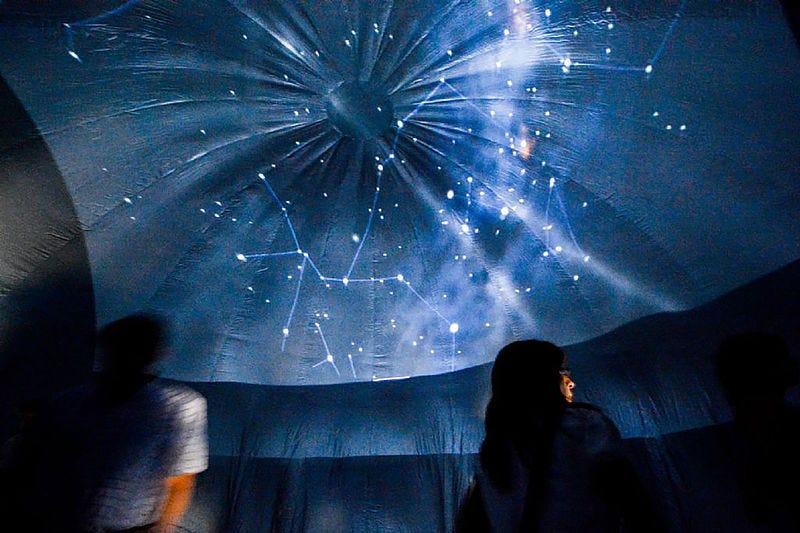Deep in the Colombian plains, amidst the armed conflict between guerrillas, paramilitary, and the army, Juan Camilo Guevara grew. From his school classroom, he could listen to the frequent clashes. The spectacle of warplanes flying over his hometown, Paz de Ariporo, was not rare. Despite the disturbing environment of his early years, Juan Camilo developed a profound love for science.
Becoming an astrophysicist was a dream that came true for him in 2017. In the same year, he had the opportunity to join an effort to make the knowledge he has learned at the university available to communities crushed by violence.
Spaces of Re-knowledge for Peace is a program created by the National University in Colombia. This initiative consists of taking art and science out of the academic centers and bringing them to post-conflict communities. Professors and graduate students organize a series of activities, where common people and ex-guerrillas members become artists or scientists for several days, in places where for years the most common activity was hiding from explosions.
After a long and devastating war, academics are convinced that only through self-sustaining political and social projects it is possible to create a culture of peace.
According to UN professor Jairo Alexis Rodriguez “Social appropriation of knowledge is built through the active participation of the various social groups and direct interaction with the actors that generate knowledge”. For him “development of innovative capacity and fostering creativity is fundamental since they are essential to achieve sustainable improvements in these communities”.
This ambitious program started in 2016, in Tumaco, a municipality on the Pacific coast. In the first workshops, professors of the National University, Faculty of Arts helped secondary school girls to write stories around anecdotes of their town. The academics used their expertise to teach them how to narrate a good story and then asked the girls to illustrate them. “We didn’t go there only to teach them things but to learn from them,” remarked literature professor Zenaida Osorio.
About seven thousand people, from eight different towns, have participated so far in these workshops. Music, storytelling/writing, plastic arts, and astronomy were among the subjects.
According to Hernán Pérez, coordinator of the Social Innovation program at the National University, “thanks to the diversity of people who participate in these sessions, the evidence shows that a piece of new social fabric is being built”.
For almost sixty years, a great expanse of the countryside regions remained inaccessible because of the risk of kidnapping and assassination. Now, they are becoming part of the nation’s productive life.
After the peace process between the government and the Revolutionary Armed Forces of Colombia (FARC), promoted by former president Juan Manuel Santos, succeeded in 2016, many Colombian academics were clear that this must be one of the next urgent steps to consolidate it. This is a unique opportunity to help create social inclusion and resilience in the South-American country.
#science #colombiapeaceprocess #astronomy #social-inclusion #latin-america #data science
